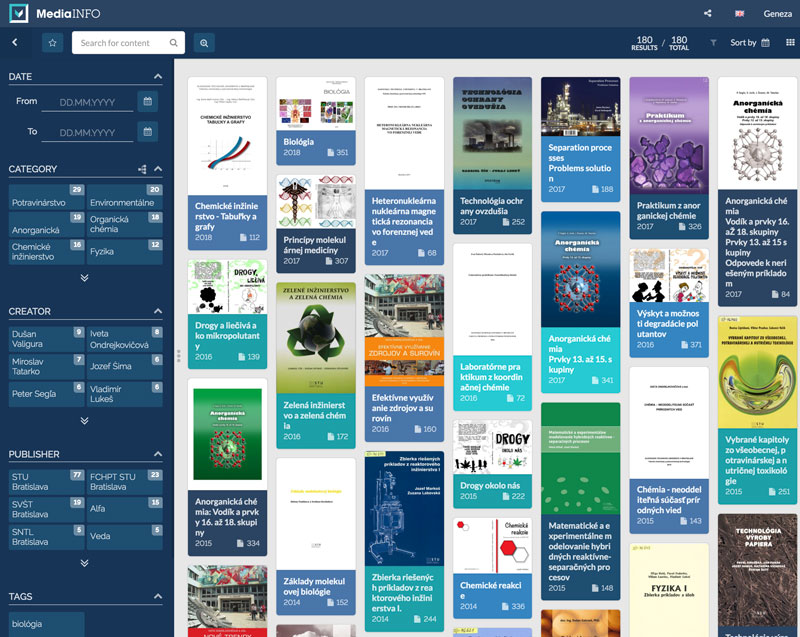Faculty of Chemical and Food technology, one from the faculties of The Slovak University of Technology in Bratislava, the most significant technical university in Slovakia, has selected Geneza’s MediaINFO solution. This central European university will primarily use MediaINFO Server as the method of distributing digital books to its numerous students. Standardising on MediaINFO is going to help cut the cost, waste, and the physical constraints of the old paper textbooks and notes that are currently printed or bought.
Additional benefits are the 24/7 online availability of the study materials and textbooks, which can be then linked, forwarded via email, printed, saved, annotated, or even translated automatically. MediaINFO is going to help sweep away the printed study materials in the university as well as the strain they place on the university library facilities. Normally an initiative that helps contain costs can hardly be expected to improve educational outcomes, but with MediaINFO the Slovak University of Technology is poised to achieve just that.
The Chemical library (where implementation will take place first) was founded in 1955 and has developed into one of the most complete collections of chemical information in the world. The chemical library’s leadership extends in being a technologically astute organisation, and a pioneer in digitisation in Slovakia. In this spirit the students will be the first to benefit from the ability to use social networking tools in conjunction with MediaINFO as well as the collaboration tools that MediaINFO provides. The ability to work on assignments together using modern web tools is something that the students are also likely to encounter in their future employment. Becoming conversant with modern ways of digital working is a skill sought by employers so this will indirectly benefit the students too.
Jozef Dzivak, the director of University’s Chemical Library, said on behalf of the Faculty of Chemical and Food technology: “We anticipate that the successful implementation of MediaINFO will help us save time, effort and costs for ourselves and for our students. This is a good application of technology that solves a number of practical problems in the real world. We are making MediaINFO our university system because it maximises access to the study materials, makes them easy to search, print and study from. But one of my favourite outcomes is the first real reduction in hundreds of thousands of pages that are routinely thrown away and reprinted either because the textbooks have been updated or because the paper copies become damaged or lost. MediaINFO will help us do our bit for the environment”.
Sasa Mutic, chief executive officer at Geneza, said, “Organisations today are challenged by inefficiencies and a lack of easy accessibility to their content both internally and externally. It is often underestimated how many resources are wasted in activities such as photocopying or printing information, especially time. MediaINFO helps optimise processes inside an organisation leading to a boost in communication, effectiveness, speedy and modern transfer of information irrespective of working hours, distances, or other constraints. The granular control of rights also allows the university to stay in control of its intellectual property”.
ABOUT THE SLOVAK UNIVERSITY OF TECHNOLOGY IN BRATISLAVA ( “STU”) & THE SLOVAK CHEMICAL LIBRARY
The STU is a modern educational-pedagogical and scientific-research institution and the biggest technical university in Slovakia. Since its establishment in 1937 more than 112,000 graduates have completed their education at STU and annually an average of 19,000 students study at the university.
STU currently consists of 7 Faculties and 2 institutes, offering accredited study programmes for Bachelors, Engineering (Master) and Doctoral study.
The Chemical library was founded in 1955 as the Library Centre at the Faculty of Chemical and Food technology Slovak Technical University in Bratislava. After various changes culminating in its current status since 2004 the library has become a major driving force for digitisation and computerisation of processes in the Slovak academic community.

